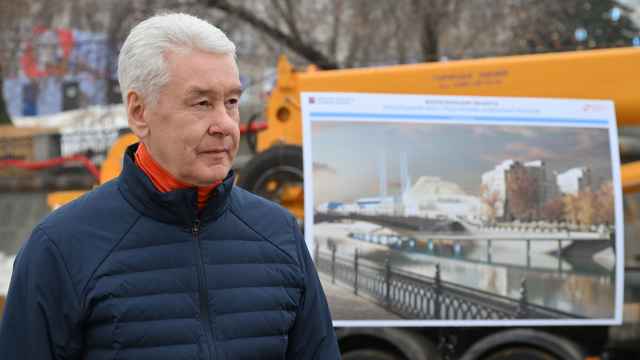BERLIN — Former Ukrainian Prime Minister Yulia Tymoshenko’s chronic back ailment has improved somewhat, but she is far from cured and the conditions at the hospital in her homeland are making treatment very difficult, German doctors said Tuesday.
Officials in Berlin have tried to persuade Ukraine to allow Tymoshenko to travel to Germany for treatment. But Karl Max Einhaeupl, the head of Berlin’s Charite Hospital, said he sees “no tendency in Ukraine to allow her to leave” for treatment.
“The medical condition has improved. She is more mobile, she is moving around at least a few hours a day,” Einhaeupl said. “The pain is a little bit less than at the beginning of the treatment, but it’s not gone at all.”
Tymoshenko’s deep distrust of Ukrainian officials and government-appointed doctors hasn’t helped and was fed by an incident in which her medical records were shown on television, he said.
Her treatment at the hospital is “under constant surveillance, by video cameras and by guards,” he added. The German doctors insisted on the cameras being taped over during visits, but Tymoshenko fears there may be more cameras.
“I think I can say that … Mrs. Tymoshenko has great trust in the doctors from Germany, but we are never alone with her. There is always someone there,” not least a second patient in the same room, Einhaeupl said.
“It is proving to be very difficult, and in the end, it is impossible to predict whether, under these conditions, we can really bring about a cure,” he said.
Einhaeupl said Tymoshenko has raised the possibility of being transferred to Kiev, which the doctors would welcome. Putting Tymoshenko under house arrest also would make matters easier.
“She is afraid that people will harm her,” Einhaeupl said. “That’s the reason she refuses every injection or everything that is invasive.”
A Message from The Moscow Times:
Dear readers,
We are facing unprecedented challenges. Russia's Prosecutor General's Office has designated The Moscow Times as an "undesirable" organization, criminalizing our work and putting our staff at risk of prosecution. This follows our earlier unjust labeling as a "foreign agent."
These actions are direct attempts to silence independent journalism in Russia. The authorities claim our work "discredits the decisions of the Russian leadership." We see things differently: we strive to provide accurate, unbiased reporting on Russia.
We, the journalists of The Moscow Times, refuse to be silenced. But to continue our work, we need your help.
Your support, no matter how small, makes a world of difference. If you can, please support us monthly starting from just $2. It's quick to set up, and every contribution makes a significant impact.
By supporting The Moscow Times, you're defending open, independent journalism in the face of repression. Thank you for standing with us.
Remind me later.





